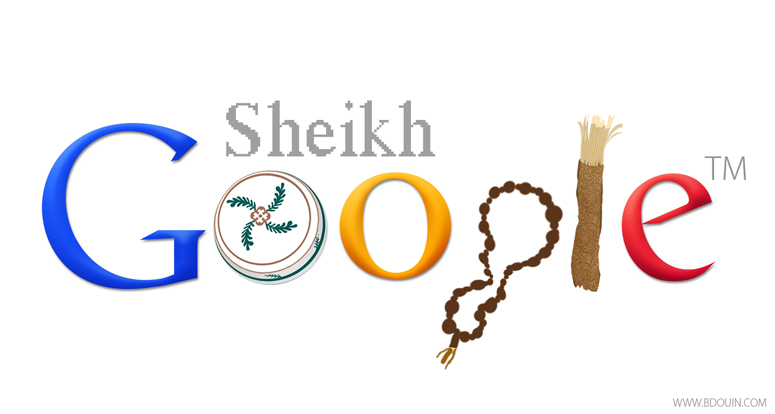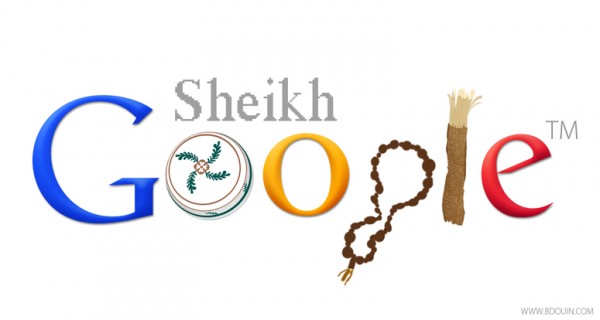
By: Nadia Jamal
Source: http://thepointmagazine.com.au/
As a growing number of young people search for information about Islam online, experts warn that ‘religions were never programmed for Google’.
It’s the online phenomenon that is gripping young Muslims thirsty for answers to pressing questions about their faith.
But ‘Sheikh Google’- where internet users are turning to the search engine to obtain religious advice ranging from the serious to the mundane – has been criticized as an unreliable source of information about Islam.
Some of the concerns mirror those raised by the medical profession about users turning to ‘Dr Google’ to self-diagnose.
Heightened criticism about Islam in the 9-11 decade prompted Muslims in greater numbers to search for answers about their Islamic identity. This came against a backdrop of growing mistrust of mainstream news sources, say academics.
Dr Gabriele Marranci, who has studied the impact of ‘Sheikh Google’ on young Muslims and non-Muslims in the United Kingdom, Singapore, Malaysia and Australia, said the trend was “a widespread problem” that particularly affected young people.
According to Dr Marranci, the director of the Centre of Study for Contemporary Muslim Lives at Macquarie University, some of the more common Google searches about Islam relate to sexuality (‘Can I have a girlfriend?’), relationships (‘Can I get a divorce?’) and politics (‘Can I take part in a public protest?’).
Most of the Google searches about Islam by Australian users so far this year relate to information about the expressions ‘Muslim’, ‘What is Islam’ and ‘Religion’. Reader interest in Australia about Islam peaked between 26 May and 1 June, a search on Google Trends found, which showed most of the searches were about the stabbing murder in a London street of off-duty soldier Lee Rigby by two men who claimed to be acting in the name of Islam. The review also found that most of the interest in the term ‘Islam’ originated in Tasmania, followed by NSW.
Why a quick fix is not always best
A global expert on Muslim affairs, Aftab Malik, who recently conducted a three-month study program for young Muslims in Sydney at the invitation of the Lebanese Muslim Association, said while the world wide web allowed young people to search for answers quickly, the platform ignored “the complexities and nuances of Islamic scholarship”.
Mr Malik said that imams (or Muslim religious leaders) trained for many years before they were qualified to speak or rule on matters of faith. This level of understanding could not be matched by an internet search.
However, he said Muslim youth increasingly mistrust mainstream print and television news, leaving most to “exclusively get their information from the internet”.
These suspicions are compounded by a growing cultural and linguistic gulf between imams at local mosques, who have a limited grasp of English, and young people, who want immediate answers in English.
Mr Malik said that turning to ‘Sheikh Google’ for knowledge about Islam is dangerous because the person at the other end who is answering the question is likely to be “a contradictory ‘sheikh’ who tells you something different on every page”.
“The internet has compounded this problem as ill-informed opinions appear to be fatwas [religious edicts] written by scholarly authorities,” he said.
Unlike many imams, he said, those who hold extreme views online can speak fluent English, are culturally savvy and find it easy to build a simplistic narrative of good versus evil, despite a lack of formal Islamic training. Such extremists take advantage of people wanting to know the answer “here and now”, Mr Malik explained, as increasingly faith is something being experienced, not learnt.
But Mr Malik warned that Islam is a “nuanced” religion, and the problem was not necessarily who was speaking on behalf of Islam, but that “everyone is speaking on behalf of Islam”.
Mr Malik, a London-based Muslim scholar, is a designated UN Alliance of Civilizations ‘global expert’ on Muslim affairs and the editor of four anthologies that explore Islamic theology, radicalism and the war on terror.
He pointed out that most terrorism-related cases in Australia involved the use of the internet for religious instruction, and there is concern that “virtual jihad can lead to physical jihad”. Since 2001, 22 people have been convicted of terrorism-related offences in Australia.
During his time in Sydney, Mr Malik conducted sessions with young people on various topics including ‘Virtual jihad: extremism on the World Wide Web’.
“On the internet, everything is on tap …,” he said.
For Dr Marranci, whose centre is a research hub in Macquarie’s Department of Anthropology, the use of the internet to issue fatwas, or Islamic rulings, is a particular concern.
“Anybody can become a sheikh on the internet,” he said.
“You cannot check the real credentials and this is very problematic because more and more, the material that is posted is political and ideological and tends to forms of radicalization, which depending on the website, is trying to produce conflict.”
The who, how and why of ‘Sheikh Google’
So who are the young Muslims turning to Google for answers?
“The people who look at the internet are not the pious Muslims,” said Dr Marranci, who is affiliated with the UK’s Cardiff University.
“They don’t go very often to the mosque.”
They may also be unnecessarily embarrassed about asking an imam certain questions, especially about sexuality.
“One of the main problems my research found is that the Muslims who use Google find pages-and-pages of answers that contradict each other, so the person feels free to pick up what they want,” Dr Marranci said.
“If you are a violent person, you pick up the violent Islam through ‘Sheikh Google’, and if you think it’s right to beat up your wife, which is not right in mainstream Islam, then you will find the answer that it is right. They don’t do any research about who is providing the information, they just get the information, as many of us do with news.”
The danger this posed was that if enough people repeated untruths, such statements could become a reality, he said.
“This is very different from face-to-face teaching of religion where you can be guided. Religions were never programmed for Google, but for face-to-face teaching.”
Dr Marranci said ‘Sheikh Google’ was responsible for misinforming some young Muslims, particularly on themes such as democratic values and the treatment of women.
“A website based in Afghanistan or Pakistan, for example, has nothing to do with Australia,” he said.
“And the context – where you live – matters. If you go to an imam, they can say, ‘I know in your village you used to do that, but here you can’t do that’.”
Dr Marranci recounted meeting a Sydney imam and a male worshipper, who were discussing whether Islam permitted the man to hit his wife. While the knowledgeable imam disagreed, the man was adamant that he could, based on what he had read on the internet.
“He [the man] had printed this document – ‘is it right to beat my wife?’ He selected the page he liked and the guy insisted it should be right because it came from the internet,” Dr Marranci recounted.
“This sounds funny, but some students do the same at university. They print out what is on Wikipedia [and use it as a source]. So, it’s not just ‘Sheikh Google’. People tend to trust more the information from the internet than face-to-face education.”
He said this was part of a growing trend where consumers were increasingly turning to the internet as an authority.
“This is a process where people believe information they can get themselves from an unknown source is better,” he said.
A call for change
Dr Marranci shared Mr Malik’s concerns about a generational gap in the Muslim community, saying the internet highlighted the widening divide between imams and young people.
“Young people use the internet,” Dr Marranci said.
“But many of the scholars of Islam are not young, so you have a generational conflict. The imams don’t have any [internet] training to address these young people. If we want to fight ‘Sheikh Google’, we need imams who are trained, to convince these people why it is wrong. It’s not enough to say it’s just wrong. You need to explain why and engage with this material.”
While it saved time, a Google search allowed users to select the answer they most liked without personal guidance.
“So more and more people create their own Islam,” Dr Marranci said.
“It’s very scary when religion becomes independent from tradition. I think this is one of the main issues that we face today as far as Islam, because Muslims have less time and Islam needs a lot of time. It’s a difficult religion to study, so what happens is that Google facilitates an easy Islam, a simple solution.”
As young people increasingly rely on the internet for news, entertainment and social networking, is there a place in the online world for a ‘cyber imam’ to help address the concerns of the digital generation?
Dr Marranci was not convinced about the potential for answers about Islam in online searches.
“Unfortunately, I’m a bit pessimistic about that because it is submerged by an incredible number of incorrect things and dangerous information,” he said.
Dr Marranci cited a university exercise where his students conducted a Google search of Islam. He said the first five pages of results portrayed Islam as evil.
“It’s not that ‘Sheikh Google’ is a problem per se; it is that people don’t often have the capacity to select the information, which may have been created for ideological reasons,” Dr Marranci said.
Amid growing calls for religious leaders to modernize their communication techniques, including social media, Mr Malik suggested Australia should establish a “virtual network of imams” or “e–imams”.
In a vast country like Australia where groups are spread out, such a network would enable religious leaders who have lost influence in the digital age to share information and knowledge.
“Make them [the imams] relevant again by making them approachable to an internet savvy generation of young Muslims,” Mr Malik said.




